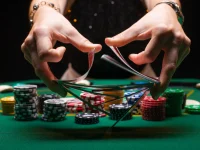Compulsive Problem Gambling Addiction: Symptoms and Consequences

Gambling as it is commonly understood includes the action of betting on the chance of something happening. Gambling can be both active and passive. Active gambling is the actual wagering on an event, whether it is a sporting event, race, game, or even a round of golf. Passive gambling on the other hand involves the act of keeping bets without having any knowledge of whether the bet would win or not. Gambling therefore requires three factors for it to be possible: consideration, chance, and a prize to be won.
In most cases, gambling takes place in the form of sports betting. There are various types of gambling available, and each has its own characteristics which set it apart from the others. Gambling on sports can be categorized as active or passive. In active gambling, like most forms of gambling where you have the choice to change your bet after certain points have been reached, it is known as the “wagering” or “betting” aspect of the game.
In most cases, this form of gambling is done by people who are suffering from some kind of mental disorder such as bi-polar disorder, clinical depression, OCD, etc. Although there are also those who gamble out of sheer boredom. With this said, it is important to note that not all people with a gambling problem actually suffer from a gambling addiction. Many times, these people gamble because of their compulsion to win. Their inability to stop gambling in its tracks is what pushes them over the edge into compulsive gambling.
Compulsive gambling behavior can take different forms. Some are simply acting out of habit, while others go above and beyond and gamble compulsively just to win. Others develop addictions to books, gambling cards, stamps, inhalants, etc. In most of these cases, treatment is available provided the person is willing to try out various treatment options to find what works best for them. However, in the vast majority of the cases, these types of addictions can be cured through professional help.
One type of gambling addiction that should be mentioned is what is known as a higher risk addiction. This refers to any addiction which increases your chances of losing more money than you gain from gambling. A higher risk addiction is basically any activity or idea which increases your risk of losing something. This can range from things like drug abuse to financial crimes. While there is nothing inherently wrong with being a higher risk consumer, the problem comes in when you want to keep gambling despite the increased risk involved in doing so.
Professional help should be sought if you are having problems with compulsive problem gambling. Gambling addictions are not a normal part of human behaviors. The consequences of continuing to indulge in these activities can have dire consequences. If you feel you may be suffering from one of these addictions, seek help. You’ll be surprised at how successful you can be in overcoming your addiction and regaining control over your life.







